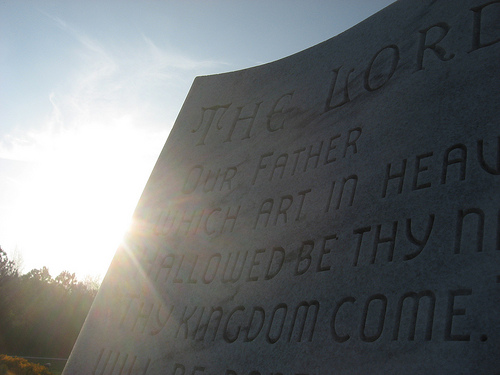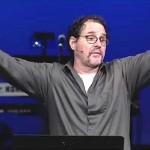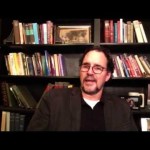We run our website the way we wished the whole internet worked: we provide high quality original content with no ads. We are funded solely by your direct support. Please consider supporting this project.

Reflecting on the Lord’s Prayer
Jesus begins the instruction on prayer (Matthew 6:9-13) by telling his disciples to pray for the Father’s name to be “hallowed,” for his kingdom to come, and for his will to be established on earth as it is in heaven. He is, in effect, telling them to pray for the fulfillment of everything his ministry, and their ministry, is about—glorifying the Father by bringing about the rule and will of God on earth. Such a prayer assumes, however, that the will of God is not being carried out in this present world.
This prayer, then, is a prayer for change, and the change involves moving from a world in which the Father’s name is not honored, his will is not done, and his rule not established, into a world in which these things are as they should be.
This petition is in essence a petition for the arrival of the eschaton, and it has decisive warfare overtones. Jesus is telling his disciples to pray that God’s eschatological reign, effected by the final overthrowing of his cosmic foes, the present world rulers, will be accomplished now.
The same eschatological and warfare significance is found in the petition of the Father to “give us this day our daily bread.” This passage may be implying that the disciples are to rely utterly upon the Father and to trust him for their daily bread as they work to bring about his kingdom rule. However the word “daily” is better translated “tomorrow.” The disciples are being told to pray for the “bread of tomorrow,” referring to the banquet feast planned for the eschaton. It is another way of asking for God’s rule to be established now.
Two points need to be made concerning the next clause, the teaching that we are to ask the Father: “Forgive us our debts, as we also have forgiven our debtors.” First this is not a type of quid pro quo declaration. Jesus is reminding the disciples of their need to forgive in the light of the Father’s forgiveness. He is not teaching the disciples to ask God to condition and proportion his forgiveness on theirs.
Second, the petition is a request that looks ahead to the final judgment. The fatherhood of God in the New Testament is associated with the willingness to forgive, and the full manifestation of this fatherhood, and thus of God’s forgiveness, is understood eschatologically.
The eschatological warfare theme comes out in an especially strong way in the final petition of the prayer: “do not bring us to the time of trial, but rescue us from the evil one.” The word “trial” speaks not of moral “temptation” (cf. NIV) but of trials and hardships. The disciples are not, therefore asking God not to play the role of “the tempter,” something God could never be suspected of doing. They are, rather, asking God to protect them from hardships that accompany their kingdom work.
From whom would they expect such hardships? The closing line of the prayer makes it explicit: “rescue us from the evil one.” Jesus knew that carrying out the Father’s kingdom work would evoke attacks from Satan and his army.
We must understand Jesus to be teaching his disciples to pray not just for protection from satanically inspired trials and hardships in general, but even more fundamentally for deliverance from the fiery end-time trial, or at least for aid in remaining faithful during its terror.
—Adapted from God at War, pages 218-220
Image by cmcgough via Flickr.
Category: General
Tags: Eschatology, Jesus, Kingdom Living, Prayer, Spiritual Warfare
Related Reading

New Testament Support for the Warfare Worldview
Warfare in Jesus’ Ministry The theme of God striving to establish his sovereign will (his Kingdom) on earth over and against forces that oppose him is prevalent in the New Testament. In keeping with the apocalyptic climate of the time, there are many references to angels at war with God, demons that torment people, and…

Podcast: If Open Theism is True, Does it Make Sense to Pray For Intercession?
Greg talks about prayer and freedom. Specifically, if free will is so important, why would God override it in answer to prayer? http://traffic.libsyn.com/askgregboyd/Episode_0123.mp3

Sermon: The Twist
In this sermon clip, Greg Boyd discusses how when you read a book with a twist ending, the ending reframes the entire story. The Bible is no different. In this sermon, Greg shows how Jesus’ message reframes how we are to understand the Bible, and he shows us why the Anabaptists shared this belief. You…

The All-or-Nothing of Kingdom Living
Nothing is more central to the kingdom of God than agreeing with God about every person’s unsurpassable worth and reflecting this in how we act toward them. Nothing is more important that living in Christlike love for all people at all times. In fact, compared to love, nothing else really matters in the kingdom. In…

Penal Substitution View of Atonement: Did God the Father Just Need to Vent?
In this video blog, Greg outlines the penal substitution view of atonement which says that the Father poured out his wrath on Jesus instead of us so that we could be forgiven. This view is very common and you might even be nodding your head in agreement with that description. However, this view creates some…

God Made Visible
During Advent, we celebrate and bring to the forefront of our imagination the God who was made visible. The Gospel of John sums up the advent of God with one sentence: “And the Word became flesh and lived among us, and we have seen his glory, the glory as of a father’s only son, full…
